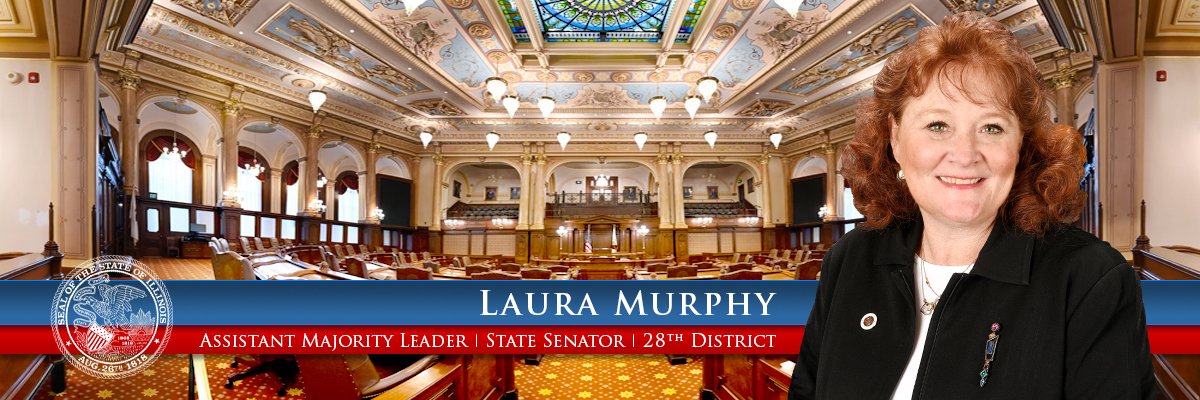- Details
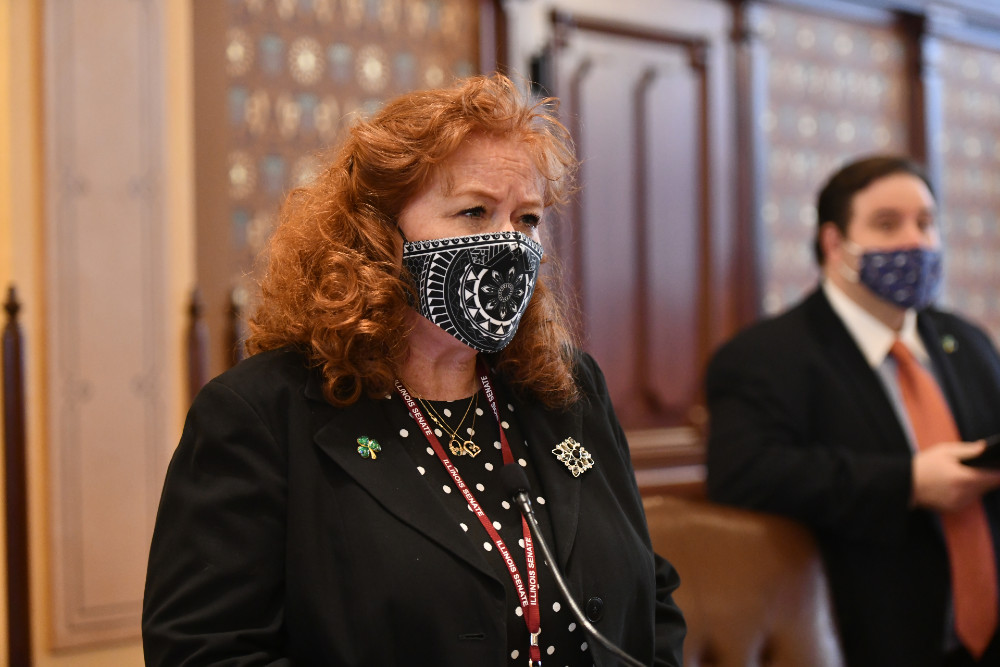 SPRINGFIELD – To clarify and streamline the annexation process for Elk Grove Village and other local governments across Illinois, State Senator Laura Murphy (D-Des Plaines) sponsored legislation to protect and strengthen municipalities’ rights to annex surrounding properties.
SPRINGFIELD – To clarify and streamline the annexation process for Elk Grove Village and other local governments across Illinois, State Senator Laura Murphy (D-Des Plaines) sponsored legislation to protect and strengthen municipalities’ rights to annex surrounding properties.
“Current laws and recent rulings surrounding annexation have complicated the process and opened local governments up to lawsuits,” Murphy said. “This legislation more clearly outlines the requirements municipalities must follow to annex property legally.”
In 2018, an appellate court in Will County rendered an annexation invalid, even though the annexation appeared to meet all statutory requirements. The ambiguity of this decision has caused problems for municipalities in other areas of the state, including Elk Grove Village in the district Murphy represents, where some property owners have attempted to legally challenge previous annexations meeting all statutory requirements in order to block future annexations.
To resolve this confusion and more clearly define the factors that determine an annexation’s validity, Murphy’s legislation would create clear statutory requirements for municipalities seeking annexation.
“The statutory requirements in place are meant to ensure an annexation decision is in the best interests of the community,” Murphy said. “It’s important that they are clear and concrete, so municipalities can follow them as intended.”
Senate Bill 658 passed the Senate Judiciary Committee and now heads to the full Senate.
- Details
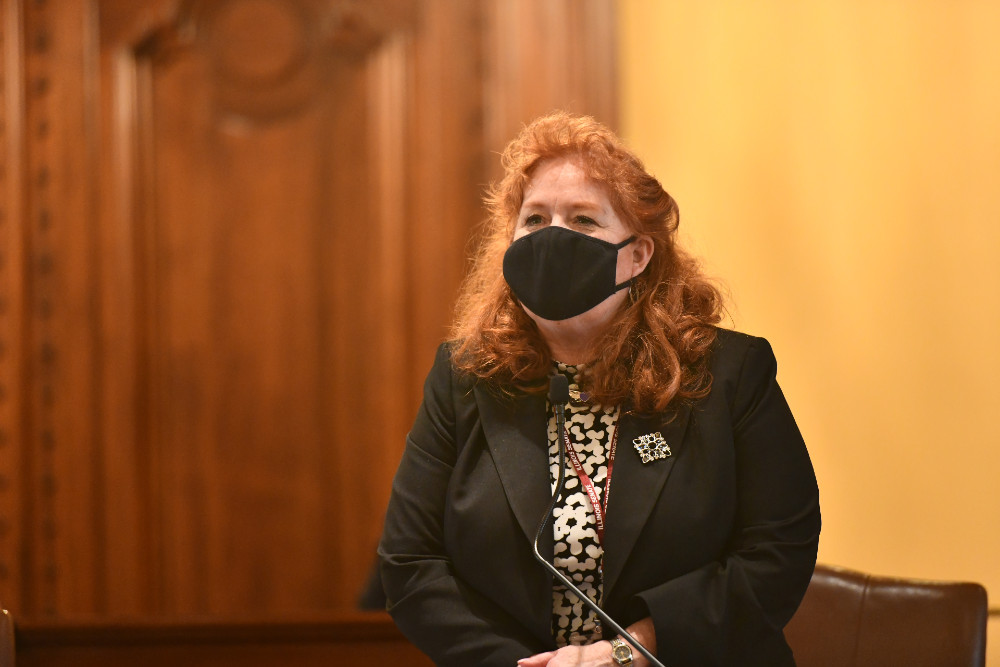 SPRINGFIELD – To prevent images and videos of children—including elementary and special education students—from falling into the wrong hands, State Senator Laura Murphy (D-Des Plaines) has sponsored legislation to remove the video recording requirement from the Illinois edTPA teacher licensing assessment.
SPRINGFIELD – To prevent images and videos of children—including elementary and special education students—from falling into the wrong hands, State Senator Laura Murphy (D-Des Plaines) has sponsored legislation to remove the video recording requirement from the Illinois edTPA teacher licensing assessment.
“Recording devices can be stolen, accounts can be hacked, and images and videos can end up on the internet without authorization, putting our children at risk,” Murphy said. “Illinois is one of just a handful of states that require this unnecessary step for licensure—there are other ways to assess a student teacher’s performance that don’t threaten kids’ privacy.”
The legislation would establish student teachers cannot be required to videotape themselves or their students in order to earn a license.
Currently, student teachers in Illinois must record themselves and their students on video to pass the edTPA, an assessment required for their teaching license. The video is then uploaded and sent to a third party vendor for evaluation. The edTPA requires just two short segments of video, but student teachers are encouraged to record hours of footage to choose from.
The legislation would still allow teacher education programs to videotape for in-house teaching purposes, and licensed teachers and administrators could still film students in order to gain National Board Certification or for training, sporting events or promotional purposes.
“Images and videos are vulnerable to attack, especially those that are uploaded and sent to third parties,” Murphy said. “With cybersecurity threats on the rise, it’s critical that we take steps to protect our children’s privacy.”
Senate Bill 808 passed the Senate Education Committee Tuesday and now heads to the full Senate.
- Details
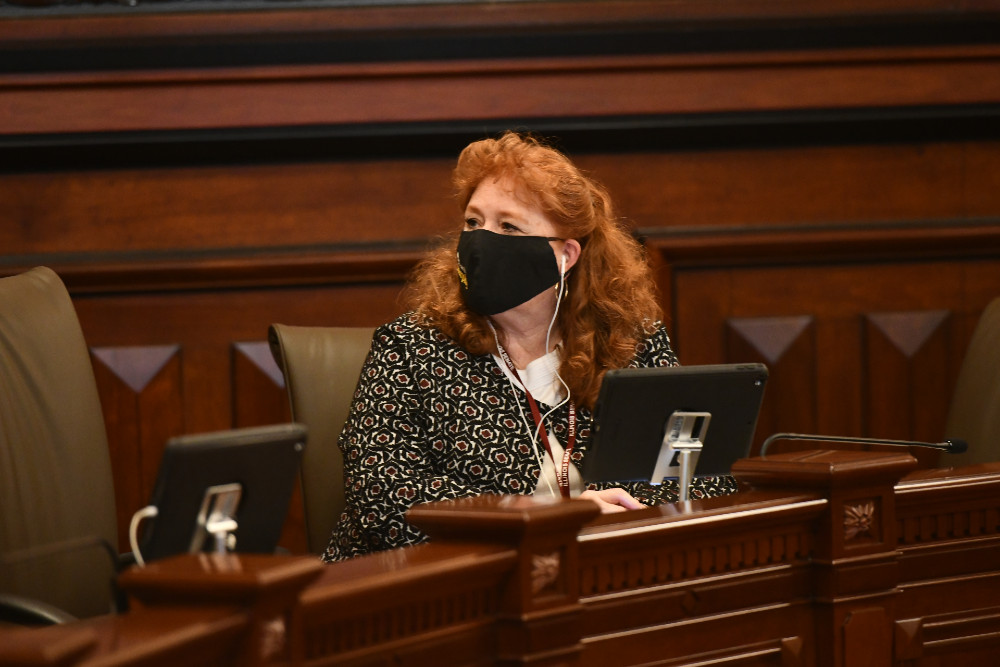 SPRINGFIELD – More Illinoisans could qualify for two state property tax relief programs under legislation from State Senator Laura Murphy (D-Des Plaines) to raise the maximum income limitations for the Senior Citizens Real Estate Tax Deferral and the Senior Citizens Assessment Freeze Homestead Exemption.
SPRINGFIELD – More Illinoisans could qualify for two state property tax relief programs under legislation from State Senator Laura Murphy (D-Des Plaines) to raise the maximum income limitations for the Senior Citizens Real Estate Tax Deferral and the Senior Citizens Assessment Freeze Homestead Exemption.
“As many households recover from the devastating economic impacts of the pandemic, it’s critical that we offer a hand however we can,” Murphy said. “These programs already provide relief to older residents across the state—it’s time to bump up the income thresholds and allow more people to benefit.”
Starting this year, Murphy’s measure would raise the maximum income limitation for the Senior Citizens Assessment Freeze Homestead Exemption from $65,000 to $75,000 for Illinoisans 65 and older living outside Cook County. Starting next year, the new, higher limit would apply statewide.
The legislation would also raise the income limit for the Senior Citizens Real Estate Tax Deferral Act, bringing it in line with the homestead exemption to simplify the process for low- and moderate-income older residents seeking relief.
“The Senior Citizens Real Estate Tax Deferral and the Senior Citizens Assessment Freeze Homestead Exemption aim to help the same groups of Illinoisans. It makes sense that if you’re eligible for one program, you should be eligible for the other,” Murphy said.
Senate Bill 2244 passed the Senate Revenue Committee Wednesday and now heads to the Senate for a vote.
- Details
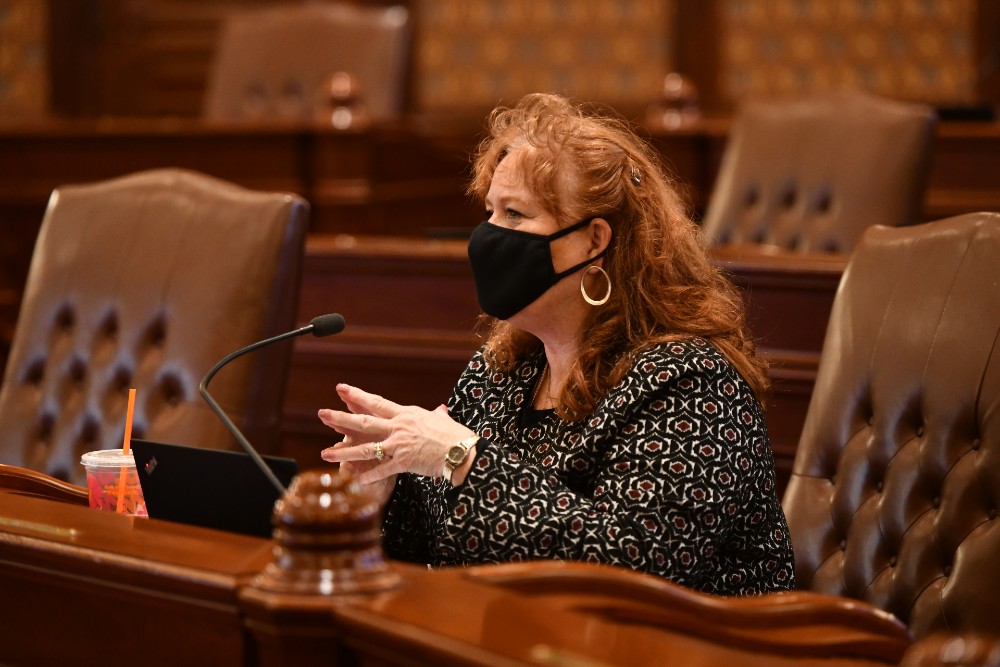 SPRINGFIELD – In an effort to crack down on university administrators who continue to exploit loopholes in the law by receiving massive payouts, or “golden parachutes,” after leaving their positions, State Senator Laura Murphy (D-Des Plaines) has advanced an initiative to strengthen current rules against the practice.
SPRINGFIELD – In an effort to crack down on university administrators who continue to exploit loopholes in the law by receiving massive payouts, or “golden parachutes,” after leaving their positions, State Senator Laura Murphy (D-Des Plaines) has advanced an initiative to strengthen current rules against the practice.
Lawmakers passed the Government Severance Pay Act in 2018 to limit the amount paid in university severance packages. Murphy’s measure strengthens the act by expanding the definition of severance pay and defining limits on compensation.
“The intent of the Government Severance Pay Act was to protect taxpayers and students from being forced to bankroll administrators’ six-figure paychecks for years after they’ve resigned from service to the school,” Murphy said. “This initiative will tighten up the language of that legislation to ensure it serves its purpose.”
Universities typically offer severance packages to end an employment agreement without litigation or arbitration. Upon resignation, many public university administrators are awarded severance packages that pay amounts equal or nearly equal to their entire salary, even in cases of declining university performance under their leadership.
Senate Bill 2240 expands the definition of severance pay to include employees who are transitioning to a new position within a unit of government. It also limits the compensation that employees may receive to the annual compensation of the highest paid employee in their department.
“Our state’s education system must reinvest tuition and taxpayer dollars responsibly, with a focus on serving students and communities,” Murphy said. “Limiting administrative costs is an important step toward making and keeping education affordable for Illinois students.”
Senate Bill 2240 advanced out of the Higher Education Committee and now goes before the full Senate.
More Articles …
Page 56 of 119
